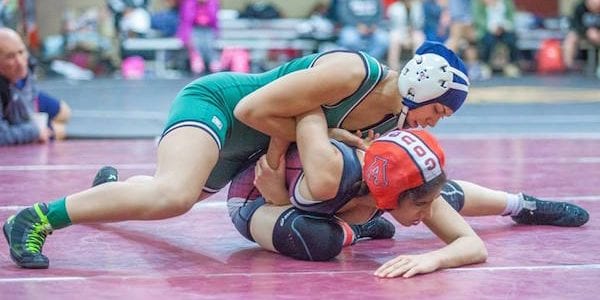
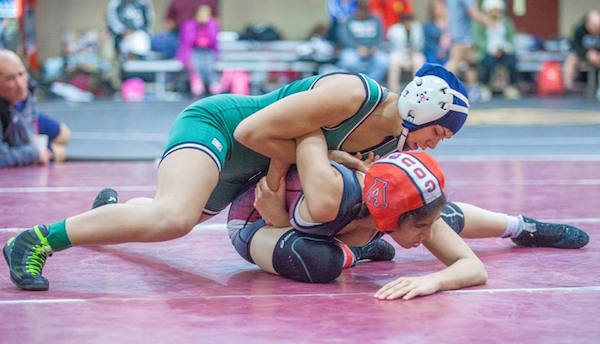
Shoulder Subluxations and Their Treatment
CalHiSports Insightswrestling December 20, 2012 SportStars 0

Shoulder subluxations are a common wrestling injury. Last year I wrote an article about reducing the risk of wrestling injuries. With the wrestling season upon us, here’s a follow up.
Shoulder subluxations, along with other shoulder injuries, are among the most frequently seen high school wrestling injuries. They represent a combined 18.6% of all high school wrestling injuries. A shoulder subluxation occurs when the upper arm bone completely separates from the shoulder blade’s “socket” but spontaneously reduces. This usually occurs in wrestling during takedowns.
As a review, the takedown position is among the most common wrestling-related activities leading to injury. From a defensive position, the wrestling athlete can experience large forces through the shoulder. Take-downs on the mat are when this happens. Clinically, the wrestling athlete will usually present with some degree of muscle guarding around the shoulder. Also they may have pain and possibly apprehension to movement of the shoulder.
_______________________________
CONNECT WITH US:
Follow SportStars on Twitter & Instagram | Like us on Facebook | Subscribe!
_______________________________
There are four phases for shoulder subluxation rehabilitation:
Phase I- Pain-free motions of the shoulder and shoulder isometric exercises. Also, basic shoulder position sense or proprioception activities, basic shoulder blade muscle exercises.
Phase II Progressive shoulder strengthening exercises, dynamic stability exercises of the shoulder and shoulder blade, advanced shoulder proprioception drills
Phase III Initiate upper body plyometric training drills, normal weightlifting activities, light sport-specific exercises.
Phase IV (Return to Sport) Continue all above exercises in Phase III and perform functional testing for the upper body.
To summarize, a shoulder subluxation are common injuries in high school wrestling. However, you can recognize it and treat it efficiently. Then it will not derail the hard working and dedicated high school wrestler from the ultimate prize — the state championship.
David Arakawa is a senior physical therapist for the staff of Sports Medicine For Young Athletes. A division of Children’s Hospital Oakland with a facility also in Walnut Creek. Questions or comments regarding the “Health Watch” column? Write the Sports Medicine For Young Athletes staff at [email protected].





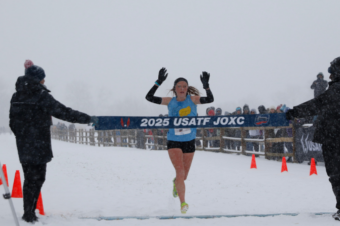
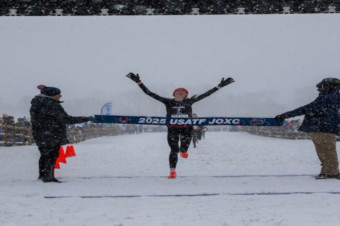
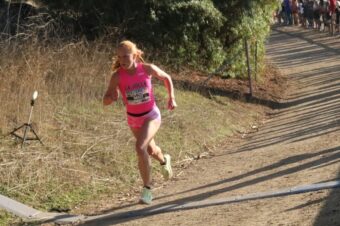
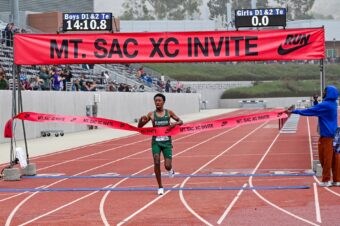
No comments so far.
Be first to leave comment below.